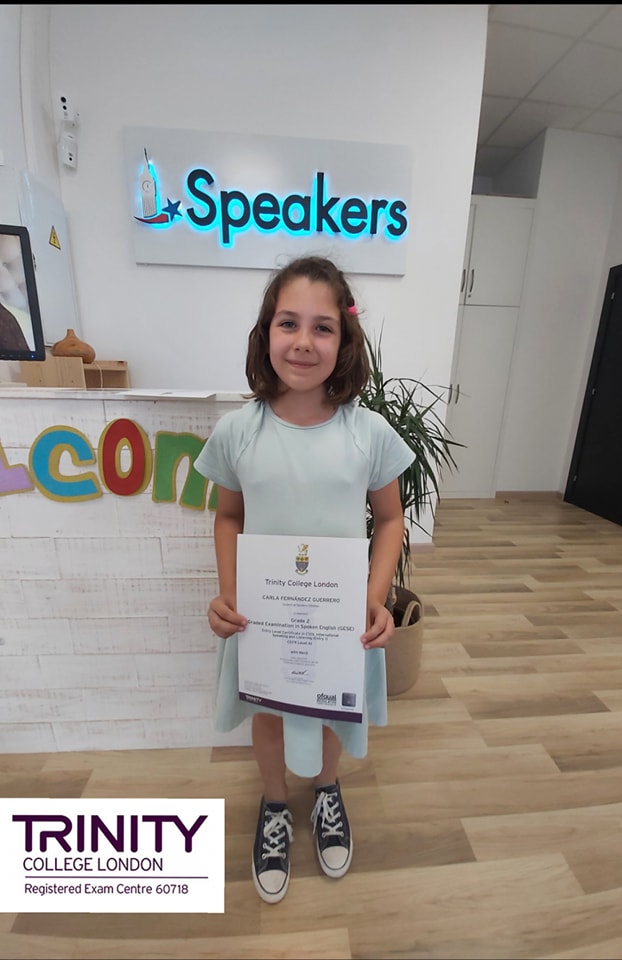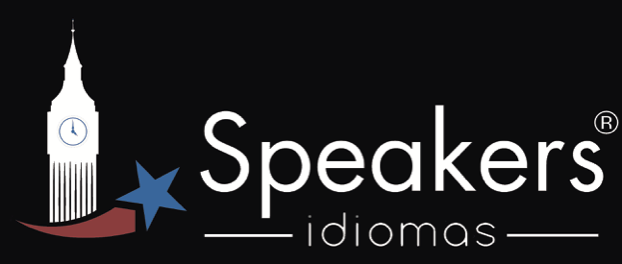
Trinity College London
Trinity College London exams are part of the National Qualifications Framework in the United Kingdom and are externally calibrated with the Council of Europe’s Common European Framework of Reference between A1 and C2. Speakers Idiomas is an official examination centre 60718.
Trinity College London exams are part of the National Qualifications Framework in the United Kingdom and are externally calibrated with the Council of Europe’s Common European Framework of Reference between A1 and C2. Speakers Idiomas is an official examination centre 60718.
Trinity GESE (Graded Examinations in Spoken English) exams are individualized oral tests of listening and speaking skills. There are 12 GESE levels available, from grade 1 to 12 (pre-A1 to C2 CEFR levels).
Gradual exams that develop communication skills
Trinity GESE exams help students prepare for 21st century life. They are designed to test a variety of oral communication skills and test what a candidate can actually do more than what they merely know.
Both teachers and candidates find Trinity’s approach to exams attractive and motivating thanks to its emphasis on developing communication skills and candidates gaining self-confidence.
The opportunity to obtain a certified recognition at each stage of learning inspires students to continue advancing in each level.
Suitable for students of all ages and abilities
Trinity GESE exams help students prepare for 21st century life. They are designed to test a variety of oral communication skills and test what a candidate can actually do more than what they merely know.
Both teachers and candidates find Trinity’s approach to exams attractive and motivating thanks to its emphasis on developing communication skills and candidates gaining self-confidence.
The opportunity to obtain a certified recognition at each stage of learning inspires students to continue advancing in each level.
The GESE exams are suitable for all students, whatever their level, from complete beginner to advanced. Students can range from school or high school students to adults- from those who need to develop their English for educational reasons, to those who want to develop their communication skills in English for professional reasons.
The exams are available in 12 levels, organized in four stages of development:
- Early Childhood (Grades 1-3)
- Elementary School (Grades 4-6)
- Intermediate Intermediate (Grades 7-9)
- Advanced High School (Grades 10-12)
Exams components
At each level, candidates must perform a series of comprehension and oral expression tasks that demonstrate their fluency, accuracy and ability to communicate in spoken English. The examination components include a:
- Topic: Before the exam, the candidate prepares a topic of personal interest of his choice, used as a basis for a discussion and as a basis for an exposition at an Advanced level.
lnteractive task: The examiner exposes a situation that serves to initiate oral interactions directed by the candidate, which will require a real exchange of information and opinions.
Conversation: This is an opportunity for the candidate to demonstrate their ability to exchange information, ideas and opinions at a level appropriate to their degree.
Listening task: Short oral fragments allow the candidate to demonstrate their prediction, deduction and inference skills (only at the Advanced level).
Exams summary

Key features
- Fostering motivating: The exams assess what the candidate can actually do (more than merely what they know) inspiring them to progress to the next level.
- Inclusiveness: There is a grade for every student regardless of their level, appropriate for all nationalities and cultural contexts.
- Individual Self-study: Candidates choose a topic of their choice to prepare before the exam that serves to engage in a discussion with the examiner.
- Expert Examiners: Examiners are trained to make candidates feel comfortable and encourage them to do their best.
- Provides support to teachers: The exams are designed to be a support to classwork, linking to the English language curriculum.
- Provided with resources: Trinity provides well-defined specifications and guidance resources for teachers when preparing their students for exams.
About Trinity
Trinity College London is an international examination body present in more than 60 countries around the world, which has a rich cultural heritage and more than 75 years of experience evaluating the English language. Recognized by regulatory authorities, our GESE degrees are widely accepted as solid evidence of a candidate’s English language skills.
Trinity’s GESE exams have obtained the ALTE Quality mark as they meet the 17 criteria of the Association of Language Examiners in Europe.




